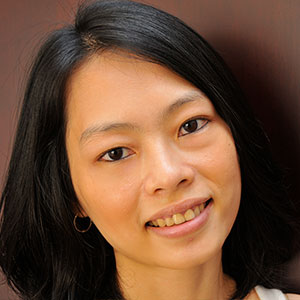When I was in Jakarta few years ago, I was stunned at how popular the series Upin & Ipin in Indonesia. The merchandises of Upin & Ipin could be seen in many places there.
Out of my curiosity, I asked an Indonesian friend about it. He told me that, Upin & Ipin is a phenomenon in Indonesia. He too watches every episode.
The series has made Malaysia proud not only locally, but also internationally.
Upin & Ipin is about the adventurous childhood of the twins Upin & Ipin and their multiracial friends in Kampung Durian Runtuh. Such a perfect way to describe the Malaysian way of life, isn’t it? I believe that this is also one of its main attractions.
If you like watching Upin & Ipin, you would not miss a character by the name Abang Salleh a.k.a. Sally. Abang Salleh as he was known in the animation, has a soft character and walk swayly.
In reality, a person like Abang Salleh is usually described by the term “pondan or mak nyah”, which is much commonly used in Malaysia.
Recently, we have heard plenty of fiery comments on lesbian, gay, bisexual and transgender rights, famously known under its acronym LGBT.
Due to its “popularity”, the term transgender has expanded to become an umbrella term that is applied to a diversified group of individuals whose gender identity or expression differs from what is actually associated with one’s sex and gender.
Many variations are provided, including genderqueer.
Not only kinds, but adults too are very much in love with the series Upin & Ipin. Here, we have plenty of merchandises that are selling like hotcakes. There are also Upin & Ipin magazine and even restaurants.
Upin & Ipin is a brand that representing the Malaysian animation industry.
Only few question the inclusion of a character like Abang Salleh in a local animation. Most viewers find the character to be amusing as he adds liveliness to the series.
If this is so, perhaps it is an indication that a character like Abang Salleh is “common” in Malaysian culture?
But, why is there a big hoo-ha about gender identity?
It is ironic that the transgender issue is such a sensitive topic in Malaysia.
Transgender activists have becoming more vocal in advocating for their equal rights. A number of transgender women in Malaysia have filed a lawsuit challenging a local law that prohibits them from expressing their gender identity. Their case will be heard on May 22.
Recently, the move by Tanjung Bungah assemblyman The Yee Cheu to establish a Transgender Committee was withdrawn in the Penang state legislative assembly sitting.
What Teh advocates are gender identity and gender rights. It is about discrimination against a minority group and ways to address such issues. Politically, it is very rare any politician would support such move, be it from the ruling or the opposition coalition.
Understanding transgender tendencies begins at home; it is the parents’ responsibility to understand his or her child.
Across Malaysia, transgender people are subject to various forms of discriminations. Harassment, verbal, sexual and physical abuses occur very often within families, in the school, in workplaces, and in society.
It is sad that we live in a society with people who look at the transgender with disgust and hatred. Many transgender people did not ask to become one, rather they were born as one.
Recently in a landmark ruling in India’s Supreme Court, transgender people are recognised as a third gender. Justice K. S. Radhakrishnan while handing down the ruling said, “Recognition of transgender as a third gender is not a social or medical issue but a human rights issue.”
The judge is right. Recognising the transgender community is a human rights issue. All transgendered people are entitled for the same right that we have, why should they be any difference?
For transgendered person, acceptance is a struggle. The causes of transgender identity can be due to factors of nature and nurture. In reality, for example, we have many talented and successful local make-up artists who from transgender community including the late Dicky Othman who was killed in 2012.
Whatever it is, the transgender community should be treated fairly. If we can accept the character of Abang Salleh, why can’t we accept the transgender community in our society? – May 19, 2014.


Comments
Please refrain from nicknames or comments of a racist, sexist, personal, vulgar or derogatory nature, or you may risk being blocked from commenting in our website. We encourage commenters to use their real names as their username. As comments are moderated, they may not appear immediately or even on the same day you posted them. We also reserve the right to delete off-topic comments